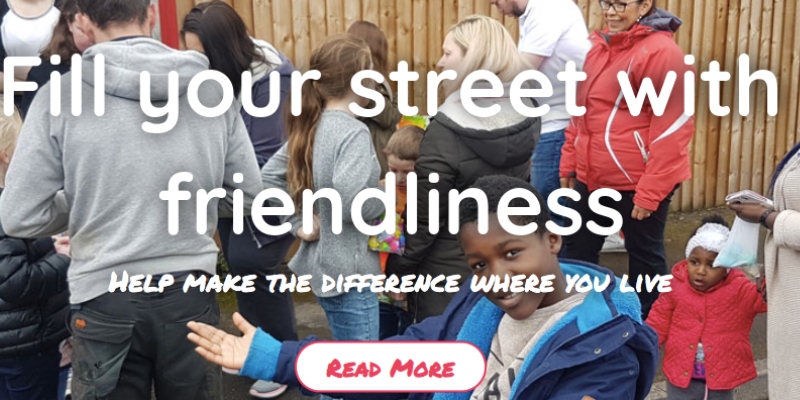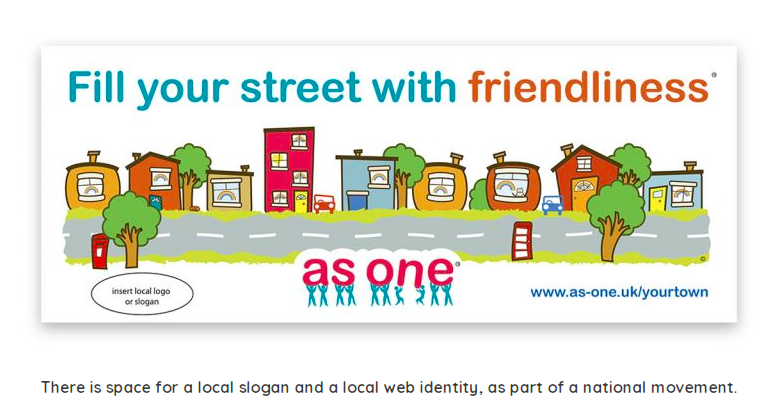Fill your street with friendliness
Churches can lead the way, in partnership, in embedding a positive experience of community for a post-Covid world. Martin Graham introduces as one, which provides a comprehensive service to help them go about it

A bright spot of 2020 was the resurgence of community spirit during the lockdown. Britain needs more of this, not least this winter – and it is churches that, in a wider partnership, can help recapture this spirit, embed it for the long term and at the same time invest in new and fruitful links with their immediate neighbourhood, especially when we emerge (whenever that is) from the Covid crisis.
But how? Pre-Lockdown, a Birmingham initiative led by Christians captured the imagination of the UK’s second city. 158 organisations joined the campaign to encourage greater friendliness; then churches used the very high-profile branding to invite local streets to a tea party to boost friendliness ‘right here’. It worked, and church members were then part of starting Street Associations on the streets where they lived, creating ongoing links, generating real community, real friendships and a new way of ‘loving your neighbour’ in practice!
Now, that tried-and-tested approach is beginning to gain traction in many parts of the UK, under the heading, ‘as one’. There are four steps to what is proposed.
The first is to fill the county/town/city with hundreds of two-metre banners with a message to re-affirm and re-stimulate community engagement on every street. In Birmingham, people said ‘I see them everywhere’ and the response was highly positive. About a third of the banners were put up by the council, others by churches, other faiths, community centres, schools (50 of them!), GP surgeries and businesses. The banners could bring their positive message soon.

Second, when possible (perhaps next May or September), participating churches each put on a simultaneous Memorial Service for their local community, coming alongside those who mourn and helping to bring peace to all dealing with loss, anxiety and trauma – as a community, gathered together.
Third, a Back Together Celebration, in the form of a tea party. Each church invites all residents from about 10 local streets and sets aside a table for each street, so that near neighbours sit together, get to know each other and can then together discuss – and implement – the idea of starting a Street Association.
Finally, on the back of consistent prayer of blessing for their own streets, church members help form these fledgling Street Associations, using things like a BBQ, quiz night or children’s party to bring neighbours together. Then watch the relationships develop, spontaneous help flow, smiles and chats flourish and loneliness retreat – with the churches and their members at the heart of all that happens, bringing something of the love of God and finding new fruitfulness.
As one is ready to help groups of churches approach the local authority, provide the banners, plus other key materials, suggested talks, mentoring, advice and written guides on how to do all this, with the benefit of national profile – all supported by a paid local coordinator to take much of the strain, so there is little work for busy pastors.
Many church leaders are up to their eyeballs with current difficulties. But now is the time to think forward to a post-Covid world and prepare for what we could do, in partnership, then, grasping a once-in-a-generation opportunity.
See a 2-minute video from Churches Together in England co-president Hugh Osgood below.
For further details specifically for church leaders, please contact Martin Graham at office@as-one.uk.
Baptist Times, 30/11/2020